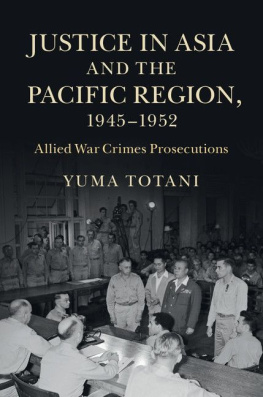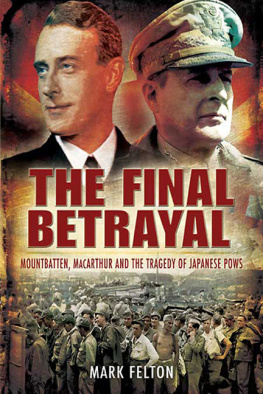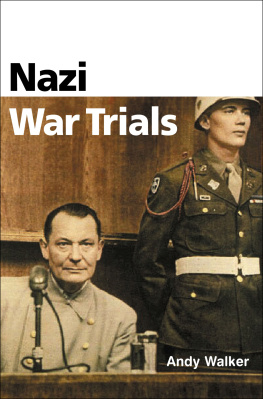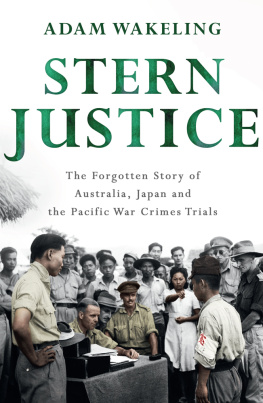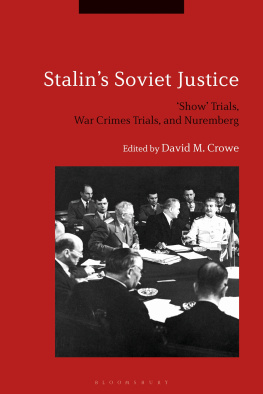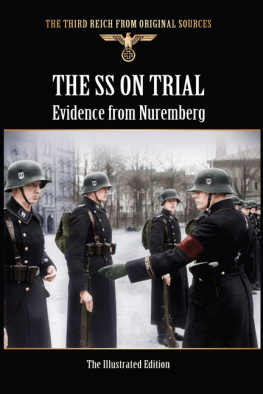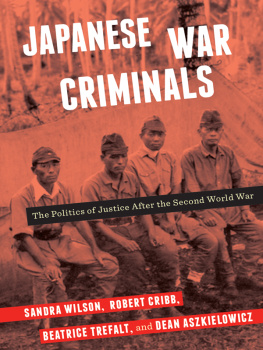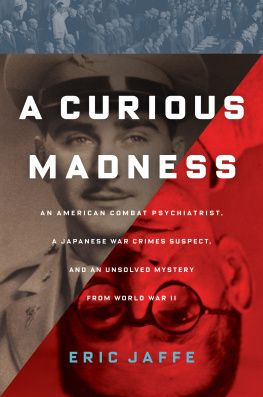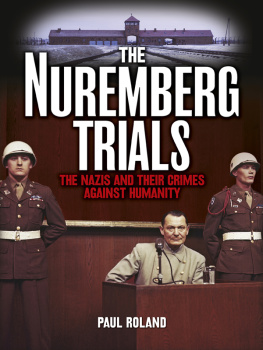Justice in Asia and the Pacific Region, 19451952
Allied War Crimes Prosecutions
This book explores a cross section of war crimes trials that the Allied Powers held against the Japanese in the aftermath of World War II. More than 2,240 trials against some 5,700 suspected war criminals were carried out at 51 separate locations across the Asia-Pacific region. This book analyzes fourteen high-profile American, Australian, British, and Philippine trials, including the Yamashita Trial (1945) and the two international proceedings (19481949) that followed the Tokyo Trial. By delving into a large body of hitherto underutilized oral and documentary history of the war as contained in the trial records, Yuma Totani illuminates diverse firsthand accounts of the war that were offered by former Japanese and Allied combatants, prisoners of war, and the civilian population. Furthermore, the author makes a systematic inquiry into selected trials to shed light on the highly complex and at times contradictory legal and jurisprudential legacy of Allied war crimes prosecutions.
Yuma Totani is associate professor of history at the University of Hawaii. She is a recipient of the Postdoctoral Fellowship in Japanese Studies granted by the Edwin O. Reischauer Institute of Japanese Studies, Harvard University, in 20052006; the Abe Fellowship granted by the Social Science Research Council in 20102011; and the Frederick Burkhardt Residential Fellowship for Recently Tenured Scholars in 20122013, during which time she took up residence at the Center for Advanced Study in the Behavioral Sciences at Stanford University. She is the author of The Tokyo War Crimes Trial: The Pursuit of Justice in the Wake of World War II (2008) and rendered its Japanese-language translation, Tky saiban: dai-niji taisengo no h to seigi no tsuiky (2008).
Justice in Asia and the Pacific Region, 19451952
Allied War Crimes Prosecutions
Yuma Totani
University of Hawaii
32 Avenue of the Americas, New York, NY 10013-2473, USA
Cambridge University Press is part of the University of Cambridge.
It furthers the Universitys mission by disseminating knowledge in the pursuit of education, learning, and research at the highest international levels of excellence.
www.cambridge.org
Information on this title: www.cambridge.org/9781107458086
Yuma Totani 2015
This publication is in copyright. Subject to statutory exception and to the provisions of relevant collective licensing agreements, no reproduction of any part may take place without the written permission of Cambridge University Press.
First published 2015
Printed in the United States of America
A catalog record for this publication is available from the British Library.
Library of Congress Cataloging- in -Publication Data
Totani, Yuma, 1972 author.
Justice in Asia and the Pacific region, 19451952 : Allied war crimes prosecutions / Yuma Totani.
pages cm
ISBN 978-1-107-08762-0 (hardback)ISBN 978-1-107-45808-6 (paperback)
1. War crime trials Pacific area History 20th century. 2. World War, 19391945 Law and legislation Pacific area. 3. World War, 19391945 Atrocities Pacific area. I. Title.
KZ1174.5.T68 2014
341.690268dc23 2014027891
ISBN 978-1-107-08762-0 Hardback
ISBN 978-1-107-45808-6 Paperback
Cambridge University Press has no responsibility for the persistence or accuracy of URLs for external or third-party Internet Web sites referred to in this publication and does not guarantee that any content on such Web sites is, or will remain, accurate or appropriate.
To my parents, sisters, and brothers
Contents
Acknowledgments
This book project has been made possible with generous funding from various centers and organizations that have supported my research over the course of the last five years. As a recipient of the Abe Fellowship in the academic year 20102011 and the Frederick Burkhardt Residential Fellowship for Recently Tenured Scholars in the academic year 20122013, I would like to take this opportunity to express my heartfelt gratitude once again for the honor and privilege of the awards and for the generous funding. My gratitude goes also to the Center for Advanced Study in the Behavioral Sciences (CASBS) at Stanford University, which accepted my application and accommodated me during the Burkhardt fellowship year. I am grateful to my home institution at the University of Hawaii, too, especially the Department of History, the College of Arts and Humanities, the Japan Studies Endowment, and the University Research Council, for providing me with critical research funds and other types of institutional support.
I have been fortunate enough to enjoy the friendship and moral support of the following individuals in recent years: Jerry Bentley (late), Mary Elizabeth Berry, David Cohen, Mark Drumbl, Fujita Hisakazu (late), Sheldon Garon, Andrew Gordon, Tim McCormack, and Richard Sousa. Each of these individuals has given me encouragement for my career development in general and this book project in particular. I am also indebted to Iriye Akira for his warm endorsement of my previous book on the Tokyo Trial, which, in turn, served as the critical foundation of the present book project. Of these individuals, Jerry Bentley was a star historian and a dear colleague of ours in the Department of History at the University of Hawaii. He fell gravely ill at the end of 2011 and passed away on July 15, 2012. He used to be my go-to person when I needed some level-headed advice on career development, and his office door was always open for walk-in consultation, just a few doors down across the hallway. He is sorely missed in our department and in the larger community of world history of which he was a pioneer. I came to know Fujita Hisakazu as an authority on international humanitarian law and a professor emeritus at Kansai University in Kobe, Japan. An impactful intellectual, yet entirely unassuming and gentlemanly, he passed away rather suddenly, on November 7, 2012. He was working on a new project, which he mentioned to me when he stopped by to say hello during my visit to Kansai University in May 2011. I am saddened by the news that he is no longer with us, and he is sorely missed.
The post-WWII Allied war crimes trials as a field of study has been in the making for some time. But how it came about and why it grew the way it has in recent decades would be inexplicable if one fails to recognize the unique contribution of David Cohen. He began exploring the archives of former Allied Powers in earnest in the 1990s in order to locate the records of thousands of trials that the Allied authorities held in Europe and in the Far East. It was largely a solitary research activity in the early years, since few remembered that these trials had ever taken place or, even if some did, took little interest in that fact (with the exception, of course, of the people in Germany and Japan). His archival work culminated in the establishment of the War Crimes Studies Center at the University of California, Berkeley, in 1999, in order that the new center could give an institutional framework to his continuing effort to collect the trial records and build the archives of these trials. His research activities have branched out into other fields since, including monitoring programs of present-day international criminal proceedings and human-rights initiatives in Asia. Presently serving as director of the Worldwide Support for Development (WSD) Handa Center for Human Rights and International Justice (inaugurated in 2014) at Stanford University, Cohen remains the worlds foremost scholar in historical studies of war crimes trials. This book is a tribute to his singular contribution in the field.

